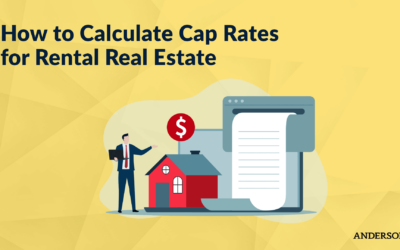Save Money Selling Your House Using the 121 Exclusion
In this episode of Coffee with Carl, attorney Carl Zoellner explains the 121 exclusion: what it is, how to use it, and how it can be combined with other provisions of the Tax Code for maximum benefits.
Updated October 6, 2020
If you’re considering selling your primary residence, you need to know about the 121 exclusion. This is a neat provision in the Tax Code that I’ve used in the past. The Section 121 exclusion can provide significant benefits if you’ve lived in your home for 2 of the last 5 years.
First, let’s look at the actual language in the Tax Code. A full reproduction of Section 121 can be found here, but I’ve also reproduced it below.
Gross income shall not include gain from the sale or exchange of property if, during the 5-year period ending on the date of the sale or exchange, such property has been owned and used by the taxpayer as the taxpayer’s principal residence for periods aggregating 2 years or more.
So, let’s break this down. First, let’s assess measuring from the date of sale. As I mentioned earlier, if you’ve used this residence as your principal residence for a combined 2 years out of the 5 years before you sell it, you qualify. Thus, when you sell that property, the amount that can be excluded from that property is not taxable to you.
Then, the next question is: what’s the amount? For individuals, it’s $250,000. For married couples, it’s $500,000. As you can imagine, this is an incredibly beneficial strategy if you’ve lived in your house for a while and have seen its value increase significantly.
On top of this, you may encounter this strategy in conjunction with a few other strategies we use here at Anderson. It’s important to keep in mind that using the 121 exclusion necessitates that you’ve lived there two years. I’ve seen a lot of clients who’ve used Section 121 with their flips. In that case, the scenario goes like this: I flipped this property, but then the market changed so I decided to move into it for a few years before I sold it. This is an ideal time to use the Section 121 exclusion.
Another possible way to receive maximized benefits from Section 121 is to couple it with another strategy involving your S-corp. A simplified version of the strategy goes like this. When I sell my personal residence to my S-corp, I retain my 121 exclusion while simultaneously resetting the depreciation schedule since the property’s changed owners.
Finally, another useful way to combine Section 121 with other tax-saving strategies for your maximum benefit is to couple the 121 exclusion with a 1031 exchange. I can especially see this being useful for California real estate investors considering the inflated price of homes there. This strategy is useful for anyone, really, who’s seen a lot of appreciation in their personal residence and is considering moving or taking some of the equity in the property and reinvesting it. By combining the 121 exclusion with the 1031 exchange, you can take advantage of both provisions of the Tax Code for maximized tax savings. This is especially valuable if you’re a real estate investor. If you’re an investor and want to take advantage of this strategy, the scenario may go like this. I’m going to sell my residence, but I first make a good faith effort to rent it out so the investment standard on the 1031 exchange is met. Then, I exchange the property, retaining my 121 exclusion because I lived in the property for 2 of the preceding 5 years. Then, I’m ready to exchange that residence for two rental properties somewhere more cost-effective than California, for instance.
Ultimately, if you’re planning on utilizing any one of these strategies, I urge you to request a complimentary consultation with a Senior Advisor. This is not an area where you want to DIY. There are a lot of little details to know about, and seeking the guidance of experts is the best way to make sure you stay on the up-and-up and don’t trigger any adverse tax consequences. If you’d like to discuss the best strategy for your individual situation, schedule a complimentary Strategy Session now. On the call, you and an experienced Senior Advisor will develop the best customized entity structure for your individual investing and goals, as well as strategize together for your benefit. You can schedule online or by calling 888.871.8535.
Watch as Carl provides an overview of 121 exclusions and how to combine this Tax Code provision with other strategies.
Resources mentioned in this video
Subscribe to Anderson Advisors on YouTube for the latest business & tax planning strategies
Schedule your complimentary Strategy Session to receive your free Wealth Planning Blueprint
Got an idea for a future Coffee with Carl? Send it to Carl at cwc@andersonadvisors.com.
BONUS VIDEO











